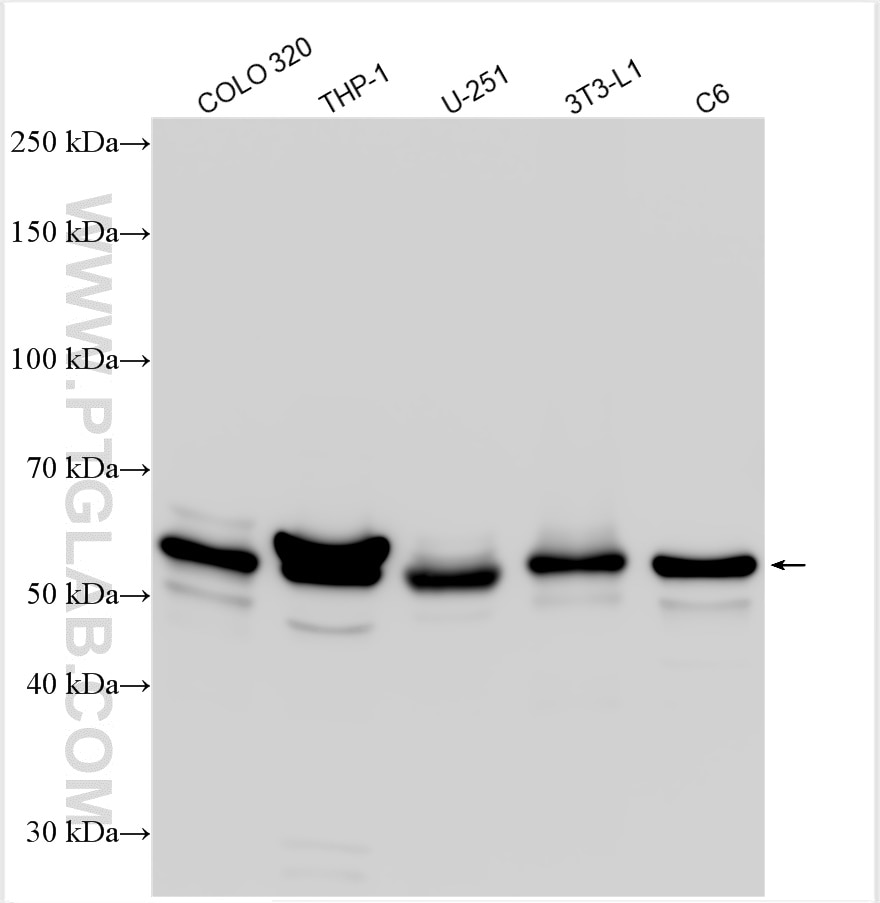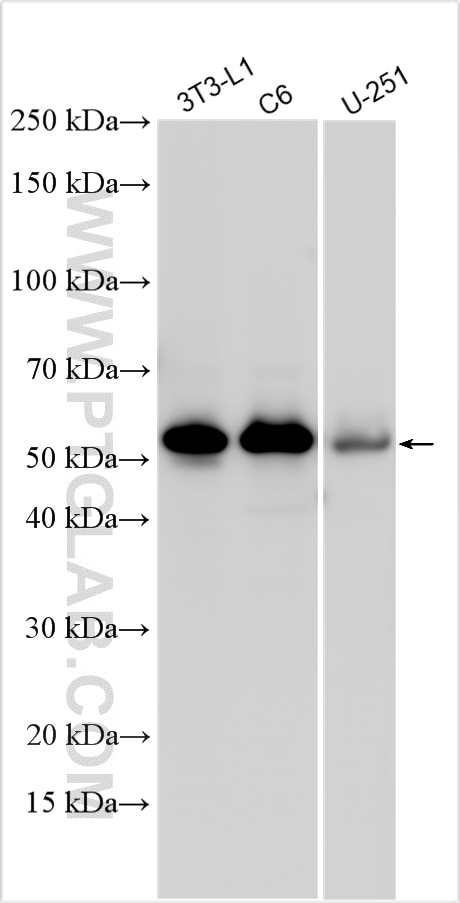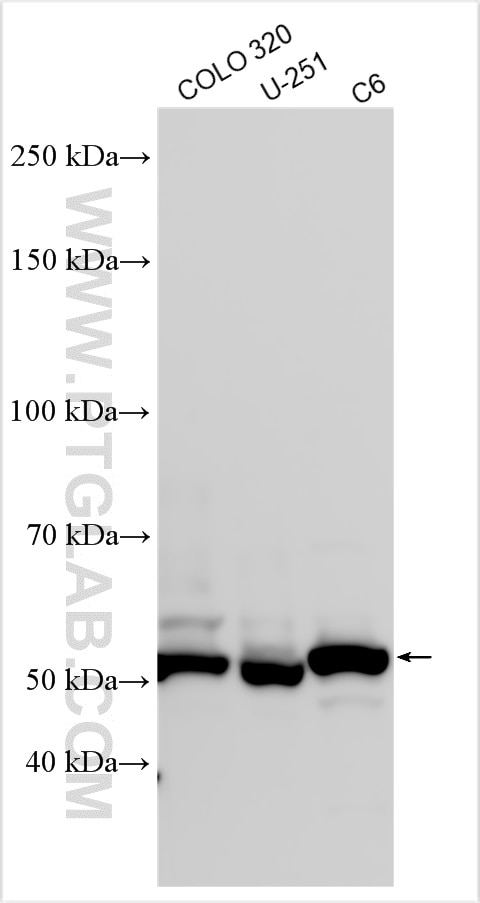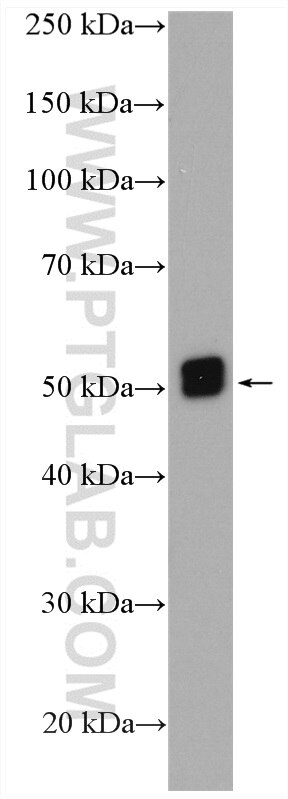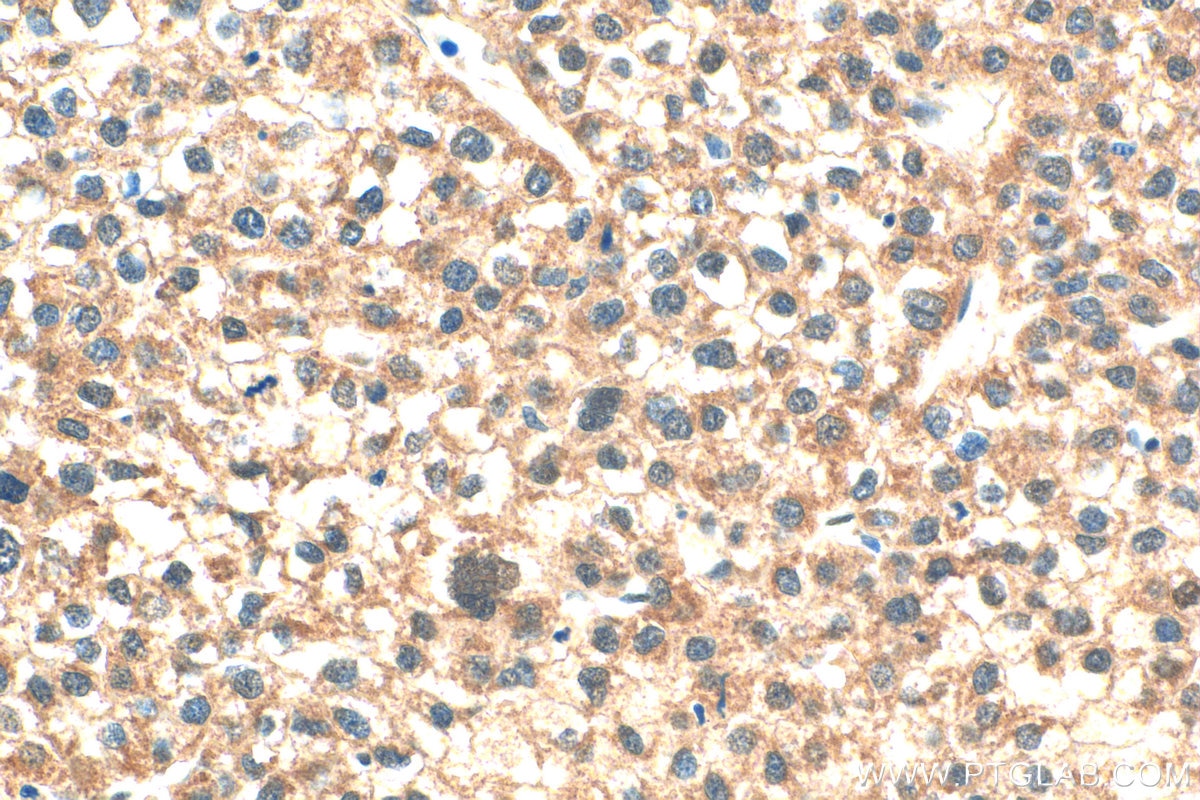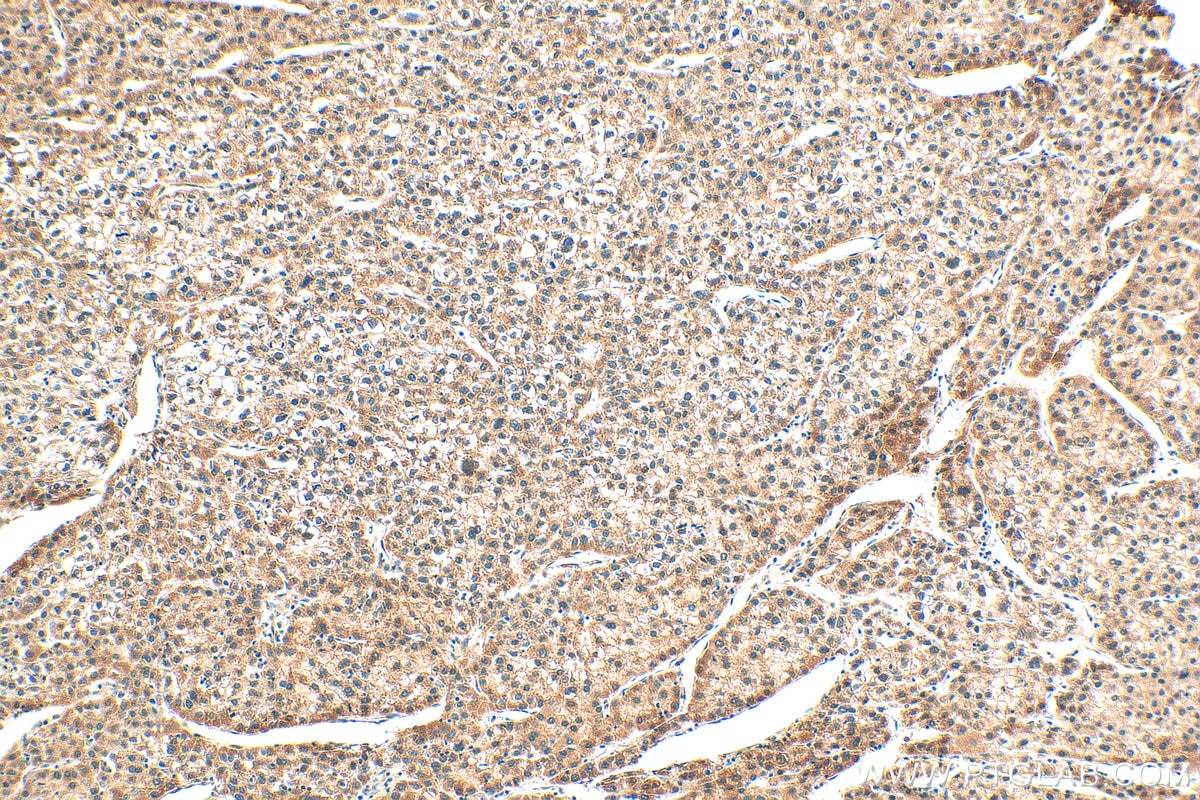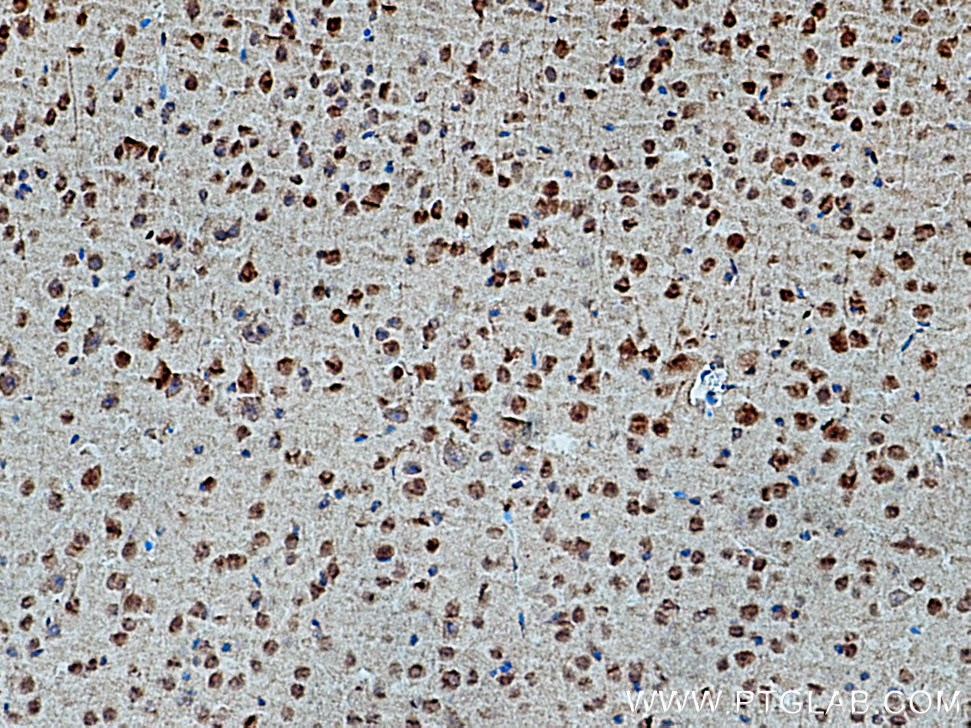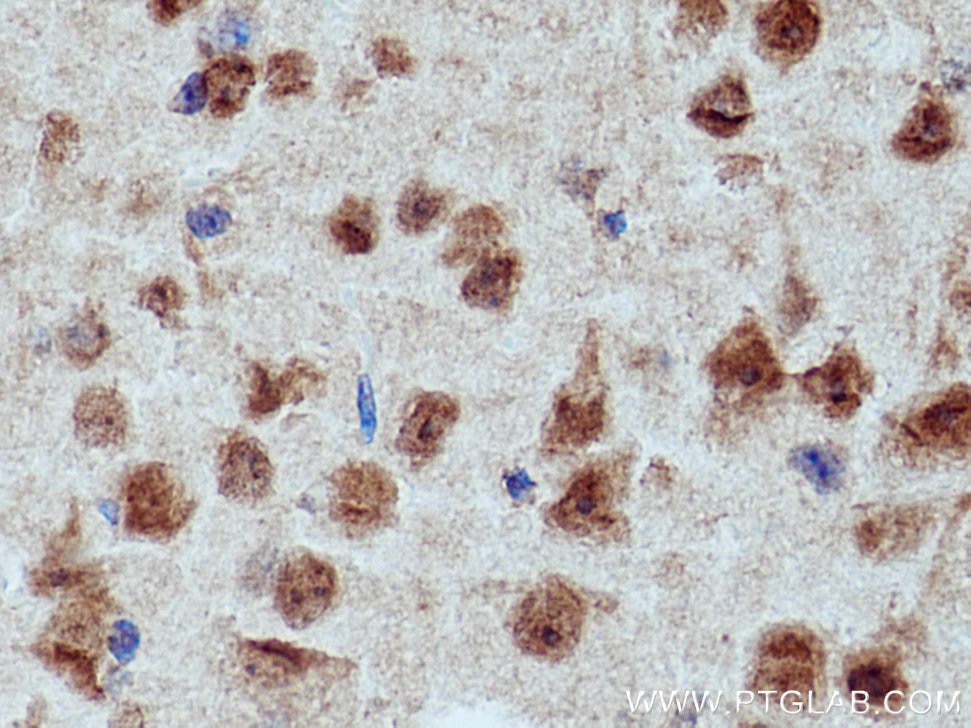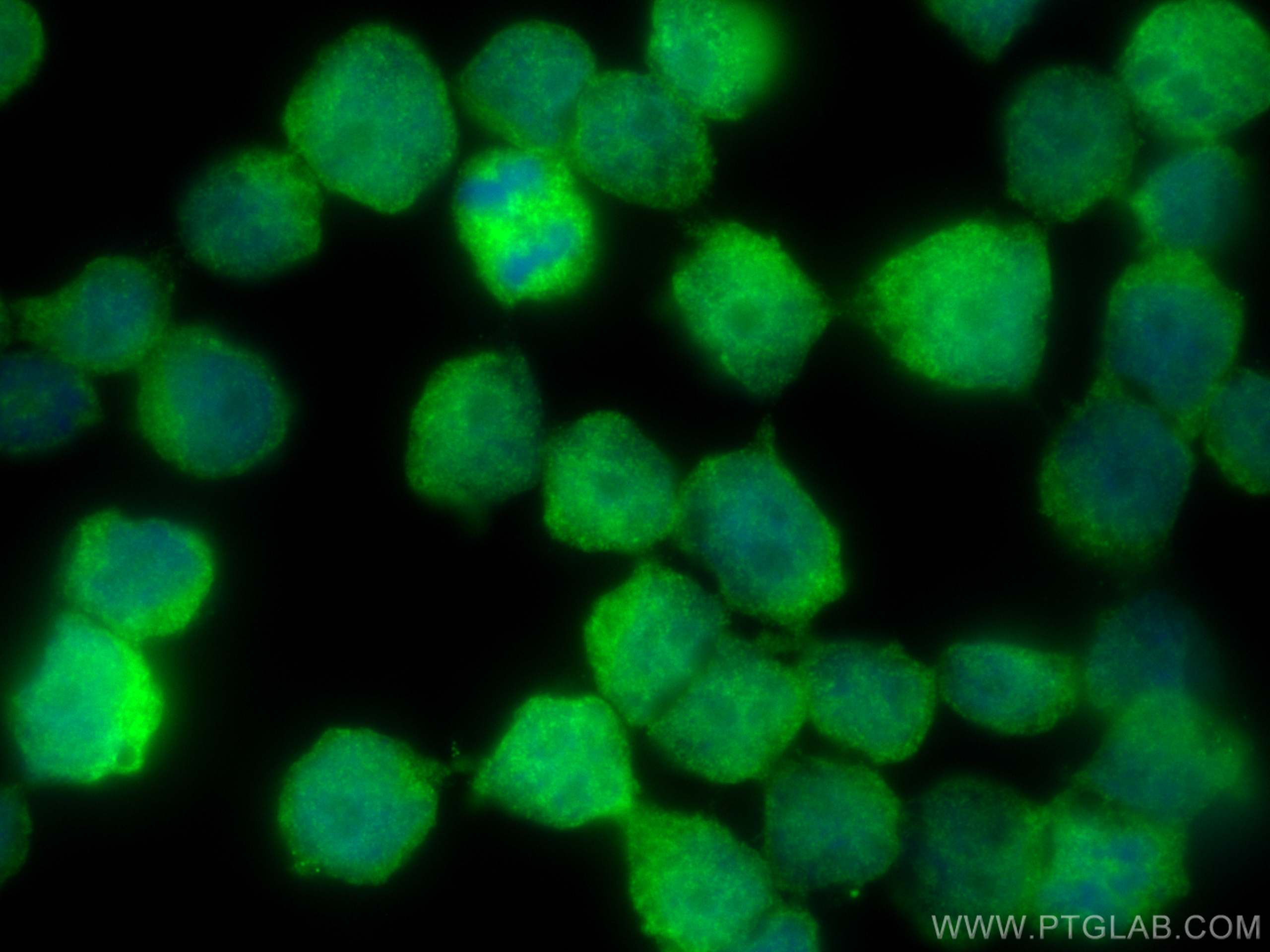- Featured Product
- KD/KO Validated
CRBN Polyklonaler Antikörper
CRBN Polyklonal Antikörper für WB, IHC, IF/ICC, ELISA
Wirt / Isotyp
Kaninchen / IgG
Getestete Reaktivität
human, Maus, Ratte
Anwendung
WB, IHC, IF/ICC, IP, ELISA
Konjugation
Unkonjugiert
Kat-Nr. : 28494-1-AP
Synonyme
Geprüfte Anwendungen
| Erfolgreiche Detektion in WB | COLO 320-Zellen, 3T3-L1-Zellen, C6-Zellen, Mauslebergewebe, THP-1-Zellen, U-251-Zellen |
| Erfolgreiche Detektion in IHC | Maushirngewebe, humanes Leberkarzinomgewebe Hinweis: Antigendemaskierung mit TE-Puffer pH 9,0 empfohlen. (*) Wahlweise kann die Antigendemaskierung auch mit Citratpuffer pH 6,0 erfolgen. |
| Erfolgreiche Detektion in IF/ICC | COLO 320-Zellen |
Empfohlene Verdünnung
| Anwendung | Verdünnung |
|---|---|
| Western Blot (WB) | WB : 1:1000-1:6000 |
| Immunhistochemie (IHC) | IHC : 1:50-1:500 |
| Immunfluoreszenz (IF)/ICC | IF/ICC : 1:50-1:500 |
| It is recommended that this reagent should be titrated in each testing system to obtain optimal results. | |
| Sample-dependent, check data in validation data gallery | |
Veröffentlichte Anwendungen
| KD/KO | See 2 publications below |
| WB | See 7 publications below |
| IHC | See 1 publications below |
| IF | See 1 publications below |
| IP | See 3 publications below |
Produktinformation
28494-1-AP bindet in WB, IHC, IF/ICC, IP, ELISA CRBN und zeigt Reaktivität mit human, Maus, Ratten
| Getestete Reaktivität | human, Maus, Ratte |
| In Publikationen genannte Reaktivität | human, Maus |
| Wirt / Isotyp | Kaninchen / IgG |
| Klonalität | Polyklonal |
| Typ | Antikörper |
| Immunogen | CRBN fusion protein Ag29353 |
| Vollständiger Name | cereblon |
| Berechnetes Molekulargewicht | 442 aa, 51 kDa |
| Beobachtetes Molekulargewicht | 51 kDa |
| GenBank-Zugangsnummer | BC017419 |
| Gene symbol | CRBN |
| Gene ID (NCBI) | 51185 |
| Konjugation | Unkonjugiert |
| Form | Liquid |
| Reinigungsmethode | Antigen-Affinitätsreinigung |
| Lagerungspuffer | PBS with 0.02% sodium azide and 50% glycerol |
| Lagerungsbedingungen | Bei -20°C lagern. Nach dem Versand ein Jahr lang stabil Aliquotieren ist bei -20oC Lagerung nicht notwendig. 20ul Größen enthalten 0,1% BSA. |
Hintergrundinformationen
CRBN plays an important role in assembly and surface expression of functional BK(Ca) channels. The mutation of human cereblon gene (CRBN) is related with mild mental retardation, and causes ARNSID (nonsyndromal intellectual disability) by distubing the developmental regulation of BK(Ca) in brain regions that are critical for memory and learning. CRBN is also identified as important thalidomide-binding protein for limb outgrowth in zebrafish and chicks. It can be detected a band above 51 kDa (maybe 55 kDa) in HT22 cells(PMID: 21232561).
Protokolle
| PRODUKTSPEZIFISCHE PROTOKOLLE | |
|---|---|
| WB protocol for CRBN antibody 28494-1-AP | Protokoll herunterladen |
| IHC protocol for CRBN antibody 28494-1-AP | Protokoll herunterladenl |
| IF protocol for CRBN antibody 28494-1-AP | Protokoll herunterladen |
| STANDARD-PROTOKOLLE | |
|---|---|
| Klicken Sie hier, um unsere Standardprotokolle anzuzeigen |
Publikationen
| Species | Application | Title |
|---|---|---|
Leukemia Phase 2 study of oral thalidomide-cyclophosphamide-dexamethasone for recurrent/refractory adult Langerhans cell histiocytosis. | ||
Hum Mol Genet Cereblon suppresses the formation of pathogenic protein aggregates in a p62-dependent manner.
| ||
J Med Chem Discovery of Novel Proteolysis-Targeting Chimera Molecules as Degraders of Programmed Cell Death-Ligand 1 for Breast Cancer Therapy
| ||
Cell Death Discov Arginine methylation-dependent TRIM47 stability mediated by CARM1 promotes the metastasis of hepatocellular carcinoma | ||
Acta Pharm Sin B Discovery of a potent PROTAC degrader for RNA demethylase FTO as antileukemic therapy | ||
Bioorg Chem Discovery of novel 20S proteasome subunit β5 PROTAC degraders as potential therapeutics for pharyngeal carcinoma and Bortezomib-resistant multiple myeloma |
Rezensionen
The reviews below have been submitted by verified Proteintech customers who received an incentive for providing their feedback.
FH Angie (Verified Customer) (07-06-2023) | The antibody detected a band around 50 kD at dilution of 1:6000 incubated at room temperature for 1 hour followed by secondary antibody donkey-anti-rabbit (Alexa Fluor 800) at 1:20000 dilution, incubated 1 hour at room temperature.
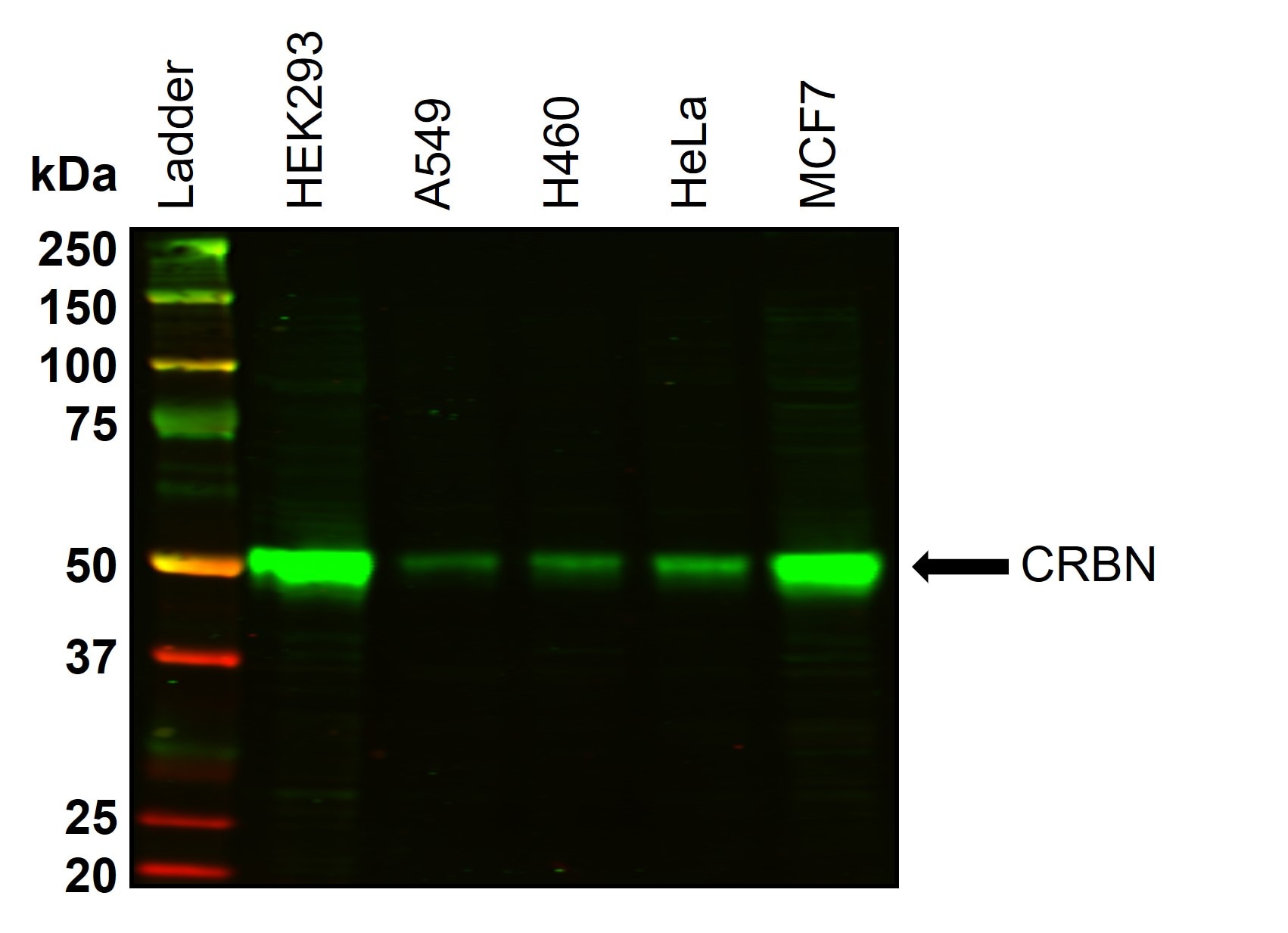 |
